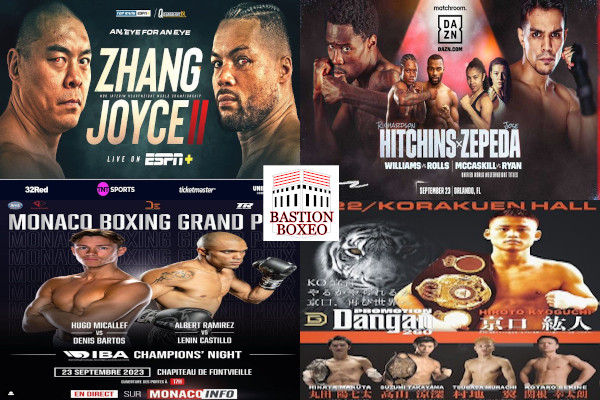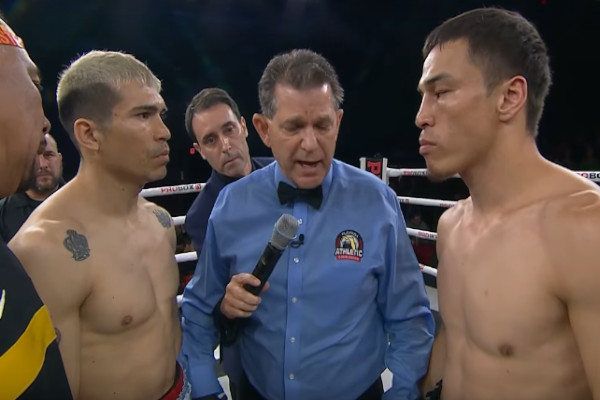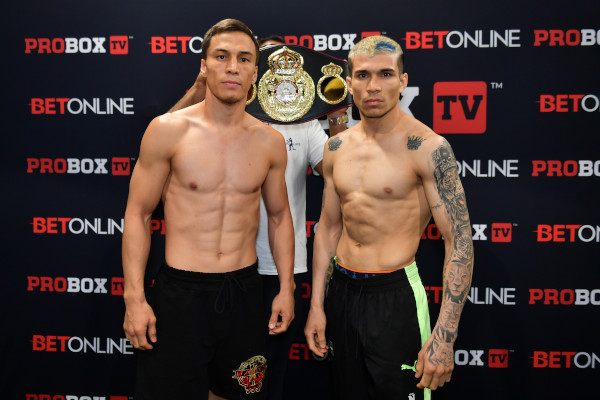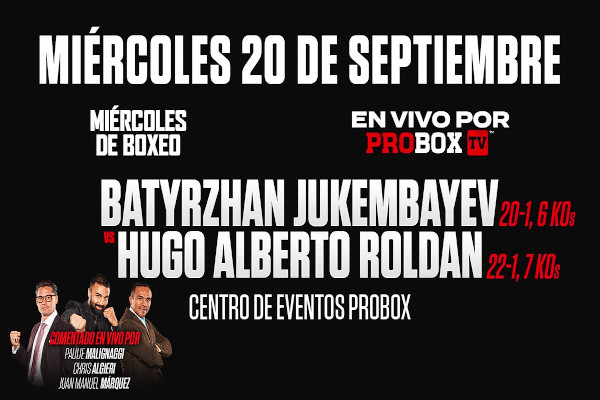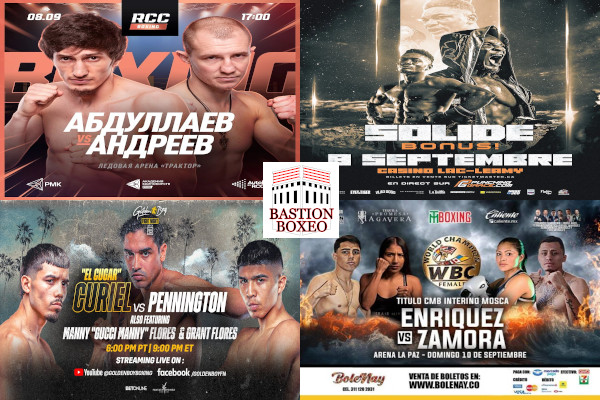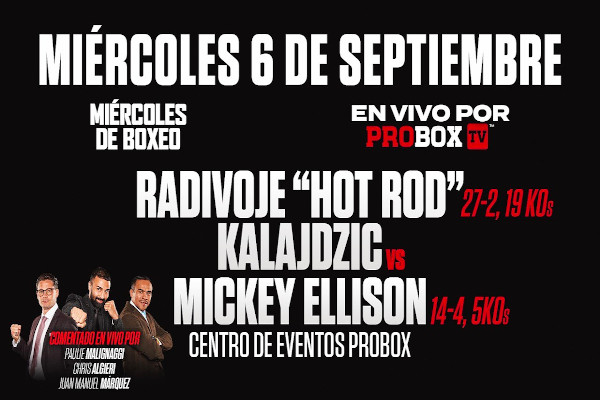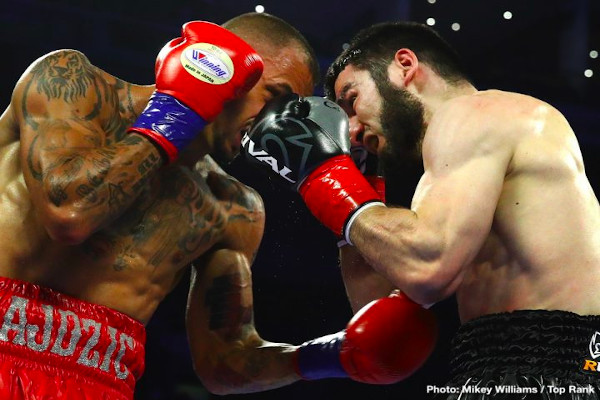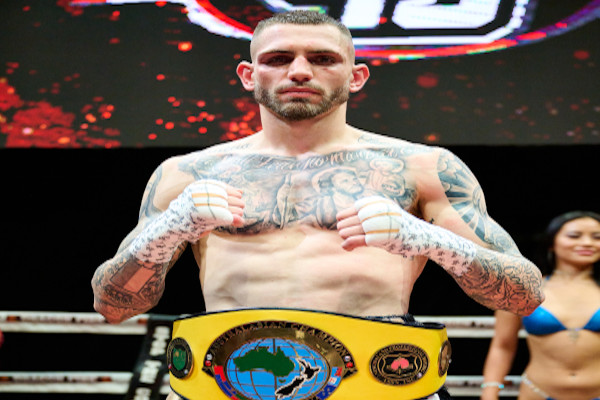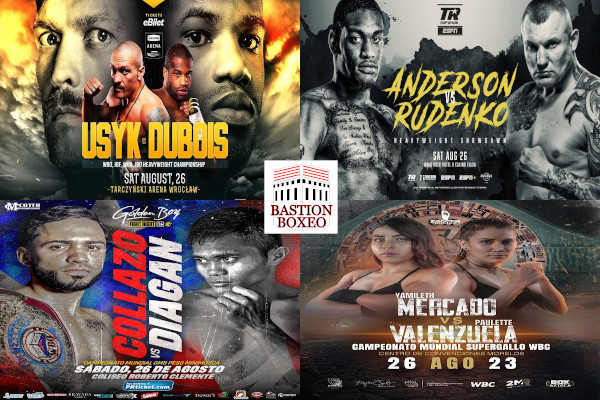El bronce olímpico Cissokho cayó a la lona pero derribó a Valenzuela y venció con amplias puntuaciones
Daniel Pi
@BastionBoxeo
Pechanga Arena, San Diego, Estados Unidos. Peso superwélter.
Con una decisión unánime y puntuaciones de 100-90 y doble 99-91, el bronce olímpico Souleymane Cissokho 15(9KO)-0 mantuvo su récord invicto y derrotó al mexicano Roberto Valenzuela Jr. 19(19KO)-3(1), quien durante la mayor parte del combate fue superado por la técnica y la movilidad de su táctico rival, que además le derribó en una ocasión. No obstante, el dominio de la situación de Cissokho se vio interrumpido por un buen susto, ya que él fue llevado a la lona antes que Valenzuela.
Durante los tres primeros episodios Cissokho estableció su habitual control táctico, o sea se mantuvo en la distancia larga y media-larga y se reposicionó con paso laterales o hacia atrás a la vez que usaba su velocidad de manos para llegar con su jab, escasísimos directos diestros y algún contragolpe en gancho zurdo o uppercut de derecha, todo ello acompañado por esquivas simples pero efectivas.
Sin embargo, en el cuarto asalto un cruzado diestro de Valenzuela dañó a Cissokho, que cayó poco después a la lona por una posterior serie de curvos. En la reanudación el mexicano atacó a la desesperada tratando de aprovechar la oportunidad pero, aunque conectó algunos buenos ganchos, terminó pagando su precipitación exponiéndose a un directo diestro a la contra que le tiró al tapiz. El boxeador señaló que el golpe le había alcanzado en la nuca, pero el árbitro realizó cuenta, siendo esta caída decisiva para que Cissokho volviese a recuperar su control.
Efectivamente, desde el quinto asalto el bronce olímpico volvió a imponer su boxeo lineal, conservador y a distancia para ir anotando manos y capturando asaltos sin arriesgar ante Valenzuela, que ya no volvió a tener un éxito ni siquiera cercano al del cuarto asalto, incluso aunque en ocasiones aceleró bastante sus pasos. Por lo tanto, Cissokho continuó haciendo valer sus cualidades, en especial sus reflejos, para vencer un choque monótono en el que, entre esquivas y desplazamientos, desoyó las peticiones de su adversario para que se parase e intercambiase.
Es verdad que la caída llegó en un descuido puntual y ante un boxeador con pegada, y que además Cissokho se recuperó rápidamente de estos apuros, logrando una victoria muy amplia. De todas formas, Valenzuela es también un boxeador sin experiencia de calidad y Cissokho ya ha padecido un knockdown aislado en otro combate, y ante un púgil sin demoledora pegada como Kieron Conway, de modo que se establecen precedentes negativos que no se pueden pasar por alto. Y es que normalmente las brechas mostradas en la fase de desarrollo o en la escalada en los rankings se ven agrandadas en las pugnas ante rivales de nivel alto.
Así, si bien es posible que Cissokho pueda ganar a bastantes top 15 si logra ante ellos imponer su técnica en pugnas de bajo ritmo, cuando se mida a un boxeador de la parte alta con habilidad y explosividad su cuestionado encaje y sus limitaciones en el boxeo en corta podrían pasarle factura de forma muy importante.
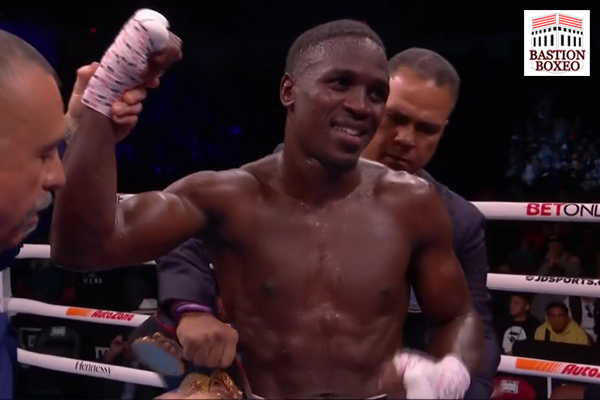
Olympic bronze medalist Cissokho was dropped but knocked down Valenzuela and won with wide scorecards
Daniel Pi
@BastionBoxing
Pechanga Arena, San Diego, United States. Super welterweight.
With a unanimous decision and scores of 100-90 and double 99-91, Olympic bronze medalist Souleymane Cissokho 15(9KO)-0 maintained his unbeaten record and defeated Mexican Roberto Valenzuela Jr. 19(19KO)-3(1), who for most of the fight was outmatched by the technique and mobility of his tactic rival, who also knocked him down one time. However, Cissokho’s control of the situation was interrupted by a scare, since he was dropped to the canvas before Valenzuela.
During the first three rounds Cissokho established his usual tactical control, as he stayed in long and mid-long range and repositioned with lateral or backward steps while using his hand speed to hit with his jab, very few straight rights and some counterpunches in left hook or right uppercut, all of it accompanied by simple but effective dodges.
However, in the fourth round a right hook from Valenzuela hurt Cissokho, who fell to the canvas after a subsequent combination. At the restart, the Mexican attacked desperately trying to take advantage of the opportunity but, although he landed some good hooks, he ended up paying for his haste by exposing himself to a right hand that knocked him to the mat. The boxer pointed out that the blow had hit him in the back of the head, but the referee counted and this knockdown was decisive for Cissokho to regain control.
Indeed, from the fifth round the Olympic bronze medalist re-imposed his low-risk boxing at long range to connect hands and capture rounds, and Valenzuela no longer had a success close to that of the fourth round, even though sometimes he accelerated his steps quite a bit. Therefore, Cissokho continued to assert his qualities, especially his reflexes, to win a monotonous clash in which, between dodging and moving, he ignored his opponent’s requests to stop and exchange.
It is true that the knockdown came in an oversight and against a puncher, and that Cissokho also quickly recovered from these difficulties, achieving a very wide victory. However, Valenzuela is also a fighter without quality experience and Cissokho has already suffered a knockdown in another bout, and against a fighter without a great punch as Kieron Conway, so there are negative precedents that cannot be ignored. Especially taking into account that normally the breaches shown in the development phase or while climbing in the rankings are enlarged in the matches against high-level boxers.
Thus, while it is possible that Cissokho can beat many top 15 boxers if he manages to impose his technique against them in slow-paced fights, if he faces a top boxer with skill and explosiveness his questionable chin and his limitations at close range could affect him in a very important way.

